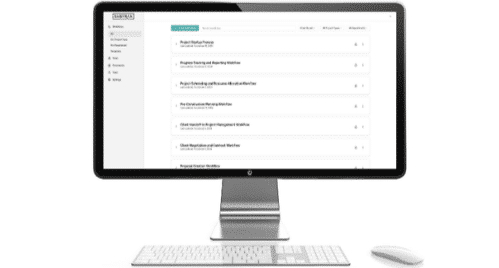The difference between being proactive rather than reactive can significantly impact a specialty trade contractor’s success and sustainability. This distinction lies in the anticipation, preparation, and prevention strategies they employ to mitigate risks, enhance efficiency, and improve project outcomes. Let’s explore the multifaceted benefits of adopting a proactive approach in your specialty trade construction business.
Setting the Stage for Success
A proactive strategy begins with creating robust systems and processes, comprehensive team training, and effective onboarding. These preemptive measures ensure that team members are equipped with clear guidelines on managing various scenarios and projects. The objective is to prevent potential issues rather than addressing them after the fact, which often involves “putting out fires” and dealing with the aftermath of preventable problems.
Benefits of Being Proactive
Enhancing Team Performance and Satisfaction
Proactive training and onboarding sets the stage for team success, reducing frustration and confusion when encountering obstacles. This approach not only prepares the team to handle challenges effectively but also creates a culture of confidence and competence. Additionally, a well-informed team contributes to a safer work environment, significantly reducing the likelihood of accidents and enhancing the safety culture within the organization.
Improving Project Outcomes
A well-defined and communicated process from project inception to completion ensures predictability while minimizing errors. Although the nature of construction work can introduce unforeseen challenges, a proactive documentation of processes and solutions for handling such issues enhances preparedness for future projects, contributing to a cycle of continuous improvement.
Operational Efficiency and Risk Management
Proactivity transcends the immediate scope of project execution, extending into operational efficiency and risk management. For instance, training in safety protocols, such as fall protection, can dramatically decrease the incidence of work-related accidents. Moreover, clear accountability and defined task responsibilities streamline project execution, enabling faster project turnover, increased revenue, and higher profit margins.
Documentation and Systematization
One of the cornerstones of proactivity in construction management is the meticulous documentation of workflows and standard operating procedures (SOPs) for each project type. This documentation facilitates the efficient onboarding of new hires, ensuring they are well-acquainted with the company’s operational standards from the outset. Without such systems in place, businesses risk inefficiency, increased stress levels, and hindered scalability.
Empowering a Competitive and Valuable Business
Proactive strategies empower teams to make informed decisions independently, leading to a workplace that minimizes reliance on micromanagement. This empowerment not only enhances employee satisfaction and efficiency but also positions the company as a leader in innovation and preparedness within the industry. Furthermore, a business that diligently documents its processes and continuously seeks improvement in its operations and culture becomes more attractive to potential investors and buyers, ultimately increasing its market value.
Conclusion
The need for specialty trade construction businesses to adopt a proactive approach cannot be overstated. By prioritizing the training and onboarding of team members, documenting processes, and establishing a culture of anticipation and prevention, specialty contractors can mitigate risks, enhance operational efficiency, and secure a competitive edge. In doing so, they not only elevate the quality of their projects and the safety of their workplaces but also ensure the long-term growth and sustainability of their business. Adopting a proactive mindset is, therefore, not merely a strategic choice but a fundamental pillar for success for today’s best specialty trade contractors.
Our Solution





